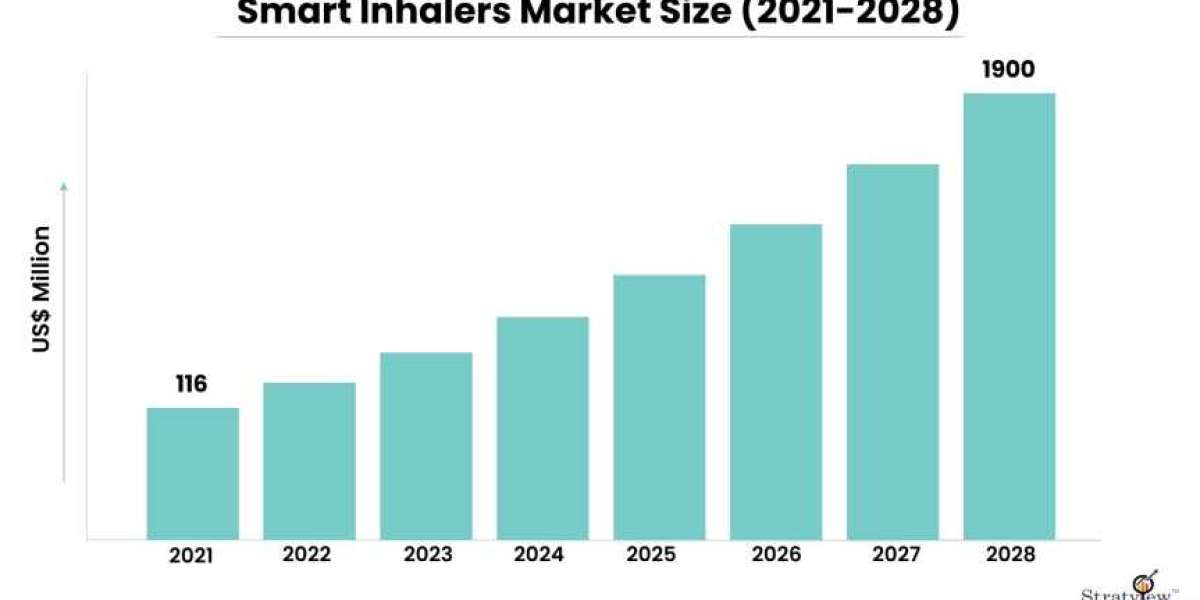In recent years, the healthcare industry has witnessed a transformative shift towards digital health solutions, and one notable innovation is the emergence of smart inhalers. These technologically advanced devices are revolutionizing the management of respiratory conditions such as asthma and chronic obstructive pulmonary disease (COPD). This article explores the burgeoning smart inhalers market and its potential to improve patient outcomes and healthcare efficiency.
What Are Smart Inhalers?
Smart inhalers are inhalation devices equipped with sensors and connectivity features that track and record a patient's inhaler usage. These devices integrate seamlessly with mobile applications, enabling patients to monitor their medication adherence and gather valuable insights into their respiratory health. The information collected by smart inhalers is also accessible to healthcare providers, allowing for more informed treatment decisions.
Market Growth and Drivers
The global smart inhalers market has experienced significant growth in recent years and is expected to continue its upward trajectory. The Smart Inhalers Market was estimated at US$ 116 million in 2021 and is expected to grow at a CAGR of 26.8% during 2022-2028 to reach US$ 1.9 billion in 2028.
Several key factors are driving this growth:
- Rising Respiratory Conditions: The increasing prevalence of respiratory diseases, particularly asthma and COPD, is a significant driver of the smart inhalers market. With more individuals requiring effective management of these conditions, the demand for advanced inhaler solutions has surged.
- Technological Advancements: Continuous innovation in sensor technology and connectivity has enabled the development of more sophisticated smart inhalers. These devices now offer real-time data tracking, reminders, and personalized treatment plans, making them attractive options for both patients and healthcare providers.
- Improving Patient Adherence: Poor medication adherence is a common issue in managing chronic respiratory conditions. Smart inhalers help address this challenge by providing patients with reminders and feedback, fostering better adherence to prescribed treatments.
- Telemedicine and Remote Monitoring: The COVID-19 pandemic accelerated the adoption of telemedicine and remote monitoring. Smart inhalers align perfectly with these trends, enabling healthcare professionals to remotely assess patients' inhaler usage and adjust treatment plans as needed.
Benefits of Smart Inhalers
The adoption of smart inhalers offers several advantages:
- Improved Medication Adherence: Smart inhalers help patients adhere to their prescribed inhaler regimens, reducing the risk of exacerbations and hospitalizations.
- Data-Driven Healthcare: Healthcare providers can access real-time data on a patient's inhaler usage, allowing for personalized treatment adjustments and better disease management.
- Reduced Healthcare Costs: Better disease management and fewer hospitalizations can lead to cost savings in the long run.
- Enhanced Patient Engagement: Patients become more engaged in their care when they have access to data and reminders through smart inhalers, leading to better health outcomes.
Challenges and Future Outlook
Despite the promising prospects of smart inhalers, challenges remain, such as affordability and ensuring that these devices reach underserved populations. However, as technology continues to advance and healthcare systems evolve, smart inhalers are likely to become more accessible and integral in the management of respiratory conditions.
In conclusion, the smart inhalers market is poised for continued growth as these innovative devices offer a solution to the challenges associated with managing respiratory conditions. With their ability to improve medication adherence, enable data-driven healthcare, and enhance patient engagement, smart inhalers have the potential to transform the way we approach respiratory health and improve the lives of millions of individuals worldwide.







